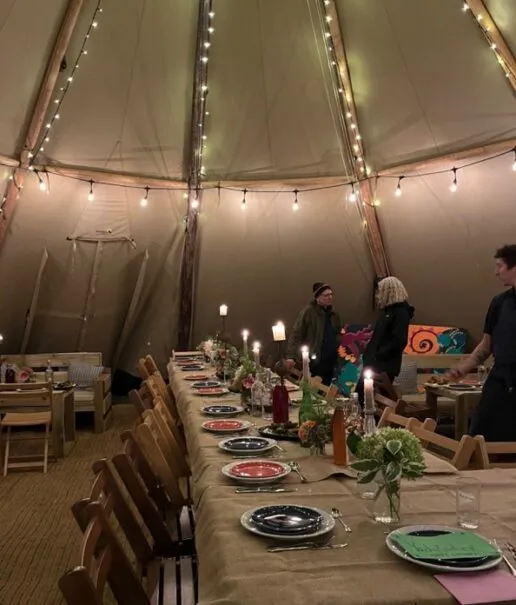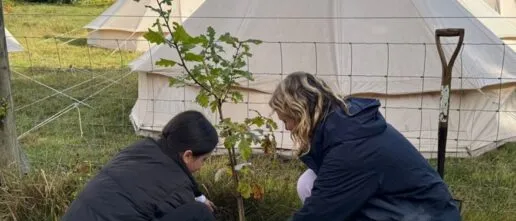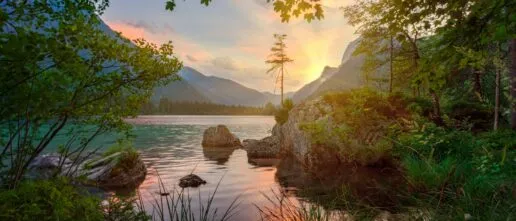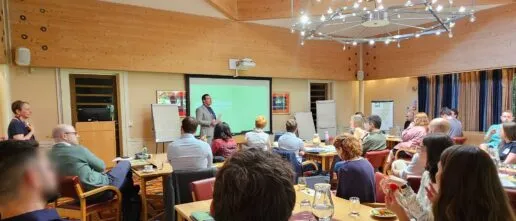Reflections on the event
by Stephen Thomas, Centre Manager, Leverhulme Centre for Nature Recovery
One of the real pleasures of working at the Leverhulme Centre for Nature Recovery is the connecting innate knowledge and feeling to science backed evidence. From Baroness Kathy Willis’ book reminding us that the sights and scents of nature can boost our creativity, mood, and wellbeing, to Yadvinder Malhi’s work showing how vibrant ecosystems may be far more resilient to climate change than the grim didactics of doomscrolling suggest — it’s an inspiring and energetic environment.
And yet, all too often, our information-sharing, creative discussions, and idea generation take place in cosy, air-conditioned offices, bound by strict two-hour agendas before participants move on to the next caffeine boost to face the onslaught of the perpetually full diary.
When I worked in the tech sector, the best designers and user-experience researchers I knew would get out of the office and immerse themselves in the real world. If you were designing a retail loyalty app, for example, you had to understand the time it took to connect to the store’s Wi-Fi, the speed of the queues, and how information was presented. Only then could you create something with real purpose.
If our hope is truly to imagine a financial system with nature at its heart, then inherent in that hope is a move from conference canapés, suits and phones to forest canopies, boots and stones.
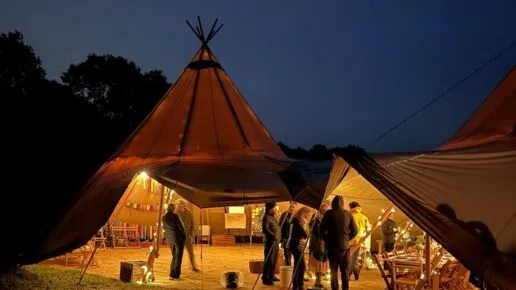
Nature Finance
Three days and two nights in the woods — with sun, rain, wind, thunder stars, and more — made it clear that this was a conference far removed from the manicured quads of traditional Oxford. There was fire, deep talk, circus and generous sharing. But did transplanting a group into the heart of nature really make a difference to our thinking and outputs?
Time will tell. There was humility in the group, and an awareness that a small collective of people, mostly from the UK, can only make a miniscule contribution to a topic that needs a far greater diversity of voices, worldviews, and institutional support. Yet there were real shifts and learnings worth reflecting on.
Wet-weather gear is a great leveller. Power dynamics dissolve into the mist when you can’t see who is wearing the sharpest business suit or who usually sits at the head of the table. Conversations became more genuine, curious, and respectful — without deference to CVs or the hierarchies of organisations.
Radical ideas aren’t generated to order, but time and space widened our view. We could see both the real societal benefits finance delivers and the blunt fact that, today, capital flowing to nature-positive outcomes is a rounding error compared to the capital that degrades nature. Short-term returns are continually rewarded even when they draw down the very biosphere those returns ultimately rely on. If we’re expecting the existing financial system to protect the living world it is also rapidly eroding, that tension deserves far deeper investigation. ‘For the master’s tool will never dismantle the master’s house.’(1)
Ultimately, this was an event of the heart, not the head. It’s rare to see so many hugs and heartfelt thanks at the end of a work gathering. Leaving the woods, there was a sense of deep sharing and co-creation. Whether this has the power to unlock any initiatives of genuine impact remains to be seen. Yet traditional finance conferences and workshops happen daily and rarely do they move the needle — so attempting something bolder, more ambitious, and rooted in nature at least expands the scope of what’s possible in how we frame our approach and discussions. For that ambition alone, credit is due to all who participated.
Since the event, WhatsApp groups and communities have sprung up. Ideas are still being shared, tested, and debated. Not all seeds will germinate, but cultivating the soil and preparing the ground for reimagined approaches to nature finance was its own reward. Perhaps, over time, some of these seeds will grow into something that, at the very least, can raise our collective ambition and help us trade jargon and hierarchy for connection and authenticity.
¹ Audre Lorde, “The Master’s Tools Will Never Dismantle the Master’s House,” in Sister Outsider: Essays and Speeches (Freedom, CA: Crossing Press, 1984).
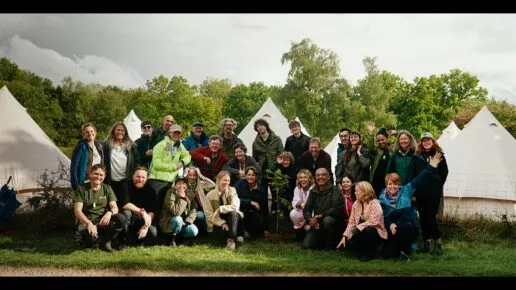
Related Research Themes

Finance
Scaling finance and investment for rapid nature recovery at a global scale.
Related Outputs
Designing for Life: reimagining Nature Finance
This essay is an invitation to dare to dream of a different future. A future where nature is recovering, where life is pulsing through our oceans, rivers and forests, and where communities thrive in relationship with each other and the rest of the living world.
